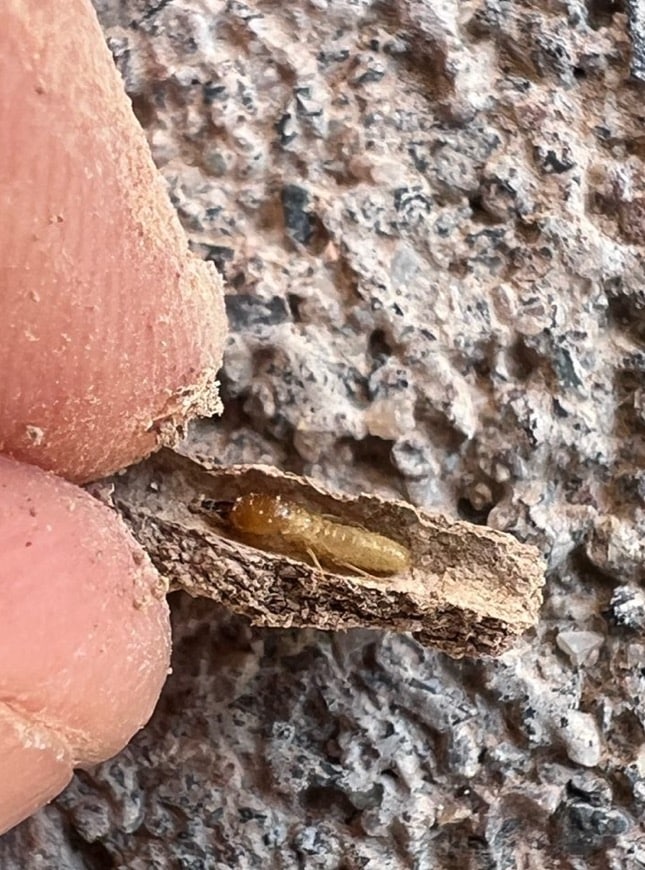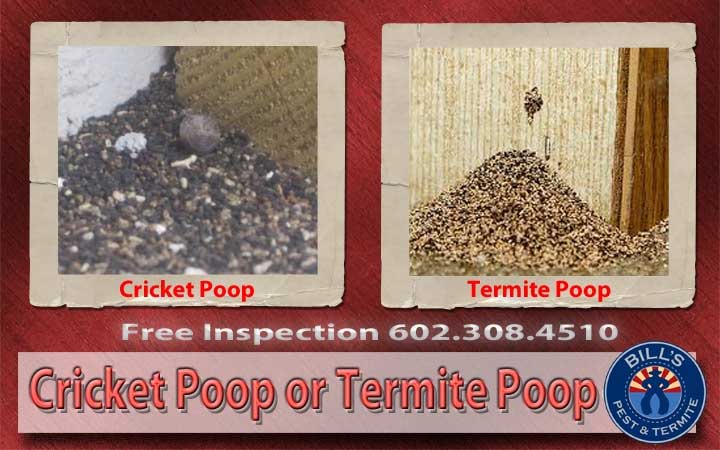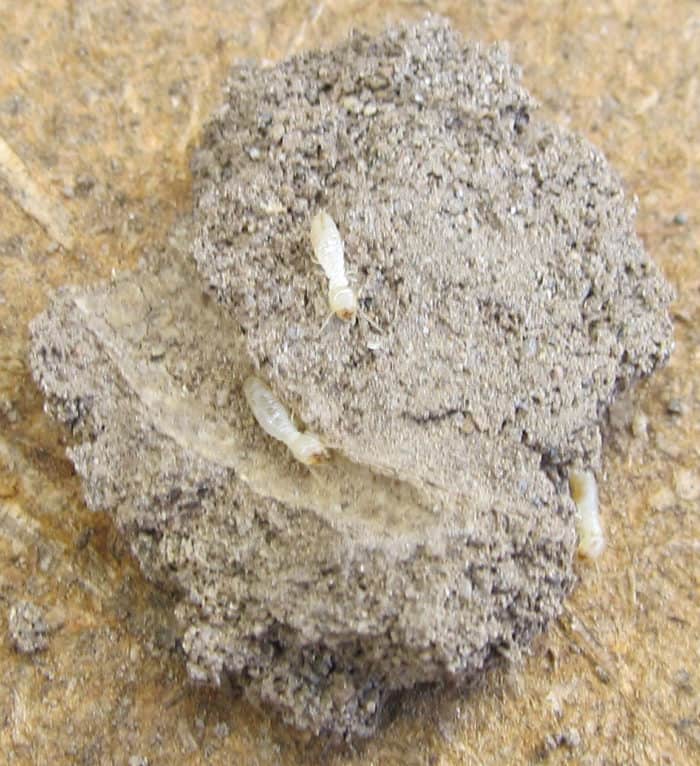Cricket poop or Termite poop?
Got termite droppings? Is it cricket poop or termite poop is a question our inspectors face from a concerned homeowner on a daily basis. For the untrained eye cricket poop or termite poop can be tough to distinguish. For a professional termite control provider, it can take seconds. If you are suspecting a problem with termites call Arizona’s Termite Experts today. Seeing termite droppings? We provide free termite inspections and evaluations 602.308.4510.
Free Termite Inspection, Evaluation & Second Opinions 602.308.4510
“Often the only sign of a Western Drywood termite infestation is the micro size droppings they leave outside infested wood.”
Several times a week we field calls from frantic homeowners wanting to know “is it cricket poop or termite poop?” Most of the time (70%) it turns out to be cricket droppings. For the other 30%, the news is not quite so good. How do I tell if I have termites?
Determining the difference is critical as one of the most destructive termites (Western Drywoods) found in North America discards fecal pellets that look similar to cricket droppings. To the untrained eye, there is little difference between cricket poop or termite poop.
Cricket or Termite Droppings?
Western Drywood termites are seldom seen and often the only sign(s) of an infestation is when a homeowner discovers small piles of fecal pellets near infested wood. Left puzzled many consumers simply clean up the piles and go about their daily business. Usually, after cleaning up the piles 2-3 times a light bulb comes on warranting further investigation. Eventually, homeowners arrive at the ole’ is it cricket poop or termite poop question. Arizona Termite Inspection.
Discovering cricket droppings is not a difficult problem to fix. Usually, it involves a pest control application and/or sealing entry points to a home. Cricket droppings should not be ignored as the problem will not just go away. Cricket populations will grow eventually attracting predator type insects…the biters and stingers. Biters and stingers (scorpions, spiders, etc.) pose a greater health threat.
Discovering termite droppings in your home can ruin the best of days. Seeing termite droppings that are visible to the human eye will usually mean you have Drywood termites. In Arizona or more specifically in Metro Phoenix it usually means Western Drywood termites one of the most destructive species found in North America.
Trusted Arizona Termite Exterminator
Depending upon the age and location(s) of the infestation getting rid of these critters can be a nightmare. Most infestations are not discovered until the colony has matured which means there is already some damage.
Getting rid of these critters can be as simple as removing the infested wood (if possible) to the more complex vacating the home and fumigating the entire structure for 2-5 days. In between problems can be eradicated with direct wood treatments, electrical shock, and chemical-free heat treatments. It’s best to have an experienced exterminator evaluate.
Bills Pest Termite Control is your hometown exterminator and Arizona’s termite experts. We provide free inspections and evaluations for all types of pest infestations and recommend every structure in Arizona be inspected at least once a year. For more information about is it cricket poop or termite poop give us a call. Termite Companies Phoenix Az.
Cricket poop or Termite poop 602.308.4510

Western Drywood Termite Poop can be mistaken for Cricket Poop by untrained eyes
Related Termite Control Content:



